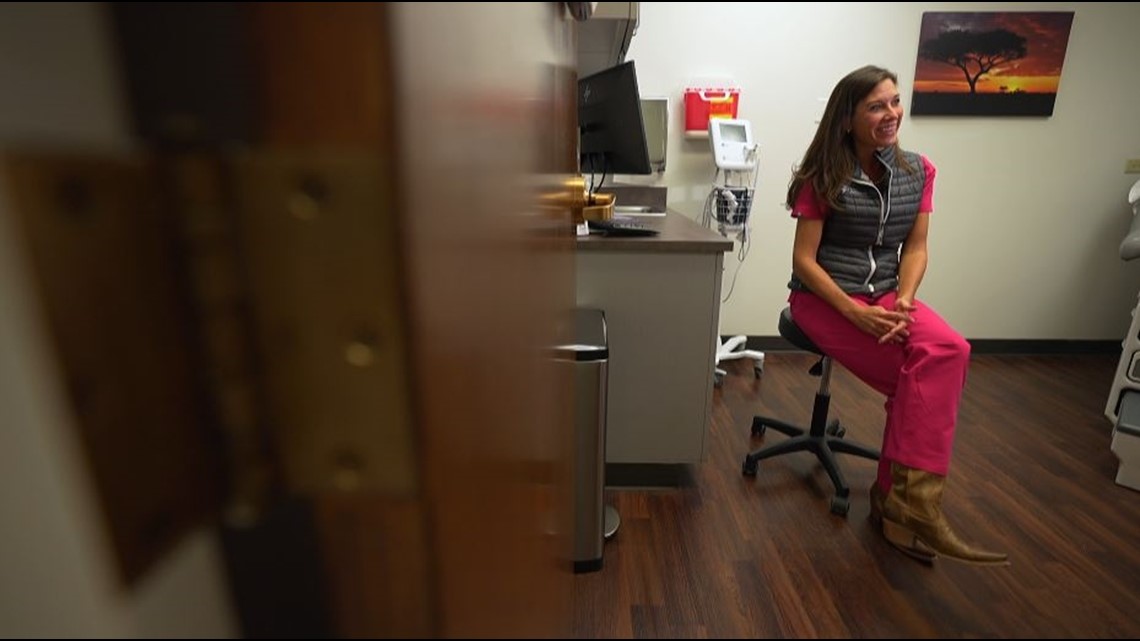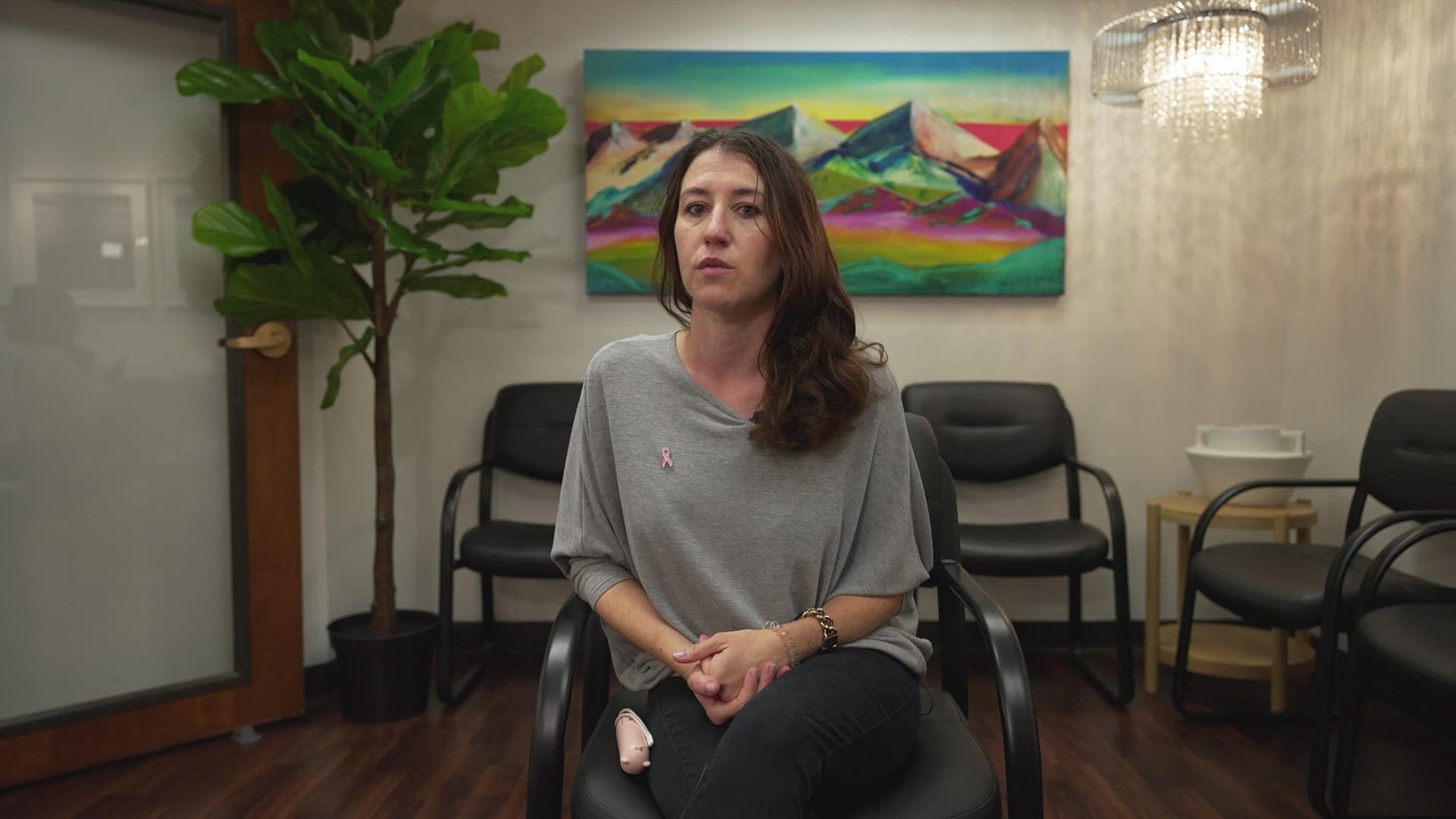DENVER — A breast cancer diagnosis is hard enough. But for many younger patients, part of their treatment plan includes how to plan for life after cancer.
“The average age of breast cancer in the U.S. is 62-64. Over half of the women I treat are under age of 50,” said Dr. Kayla Griffith, a breast surgical oncologist at Rose Medical Center in Denver who specializes in working with younger patients.
“I have a lot of 20, 30, and early 40-year-olds who were planning other things in their lives other than getting cancer and having to deal with a diagnosis and treatment.”
There’s never a good time to get bad news. But Dr. Griffith said many of her patients are still in the prime of their life.
If their treatment plan is successful, these younger patients have the potential to enjoy decades of life after cancer and the many life experiences still available in those years – like motherhood. Dr. Griffith said a patient’s age will influence those kinds of planning conversations before beginning any kind of treatment regimen.


“It is a question of, hey once we start this process, it can significantly knock your fertility. So unfortunately, you’ve got to make that decision right now. And gosh that is a daunting question, and a daunting decision,” she said. “Oh by the way, you have a life-threatening illness, but – can you let me know if you want to have kids?”
Molly Ernst had to answer that question, and many more, three years ago.
She was diagnosed with breast cancer in December 2020, at just 31 years old.
“I’m a really Type A person. So I just needed to know what to do next to get back [to normal], to get over this,” she said. “It was hard to tell family, hard to talk to people. I felt like, it can’t happen to me. It was weird that it was all happening.”
Coincidentally, Ernst had already reached out to a fertility clinic before her cancer diagnosis. She had some fertility insurance benefits through her employer at the time, and no immediate plans for a family – and was already considering freezing her eggs to use later. But she didn’t feel any urgency at the time to move forward with fertility preservation immediately.
Until her cancer diagnosis pushed her toward that decision – and quickly.
“It seemed like it would be safer for me to go through it, get it over with. I knew if I hadn’t done it, fast forward, I would have blamed everyone for me not getting pregnant,” she said.
In a matter of weeks, Ernst had a double mastectomy done by Dr. Griffith, followed by fertility treatment to freeze eggs, followed by the start of chemotherapy. She would also have radiation therapy after that.
“The fact that I’d frozen my eggs made me feel honestly calmer, because I had more control over my future, in a sense,” she said. “The whole fertility process was hard. But the fact that I froze my eggs, it’s just such a relief. It’s like my savings account. It’s better than my savings account!”
Today, Molly is cancer-free.
She’s living in what she and her doctor call a “maintenance” phase. While she is still taking medications with side effects like hot flashes, she is also enjoying the beginning of the life she planned for after cancer.
“Now I definitely feel like myself again. Parts of myself come back more and more every day,” she said.
Those parts include teaching yoga, hiking with her new dog, and seeing a body she recognizes in the mirror. Her eggs remain frozen at her fertility clinic, available for use if – and when – she is ready to try motherhood.
And while she has returned to some of her pre-cancer norms, she also feels totally different.
“I’m not the same person at all, a lot has changed. I think that has been the biggest part I’ve had to understand or grieve… that’s the intangible side I don’t think a lot of people see.”
Molly can’t wait to find out what life looks like after cancer.
“I just want to enjoy my life. Embrace things I don’t think I was embracing before,” she said with a smile. “Yeah. I’m getting emotional about it.”
“Just know that on the other side – there’s a life left to live,” Dr. Griffth added. “There’s a life left to live.”
SUGGESTED VIDEOS: Latest from 9NEWS

